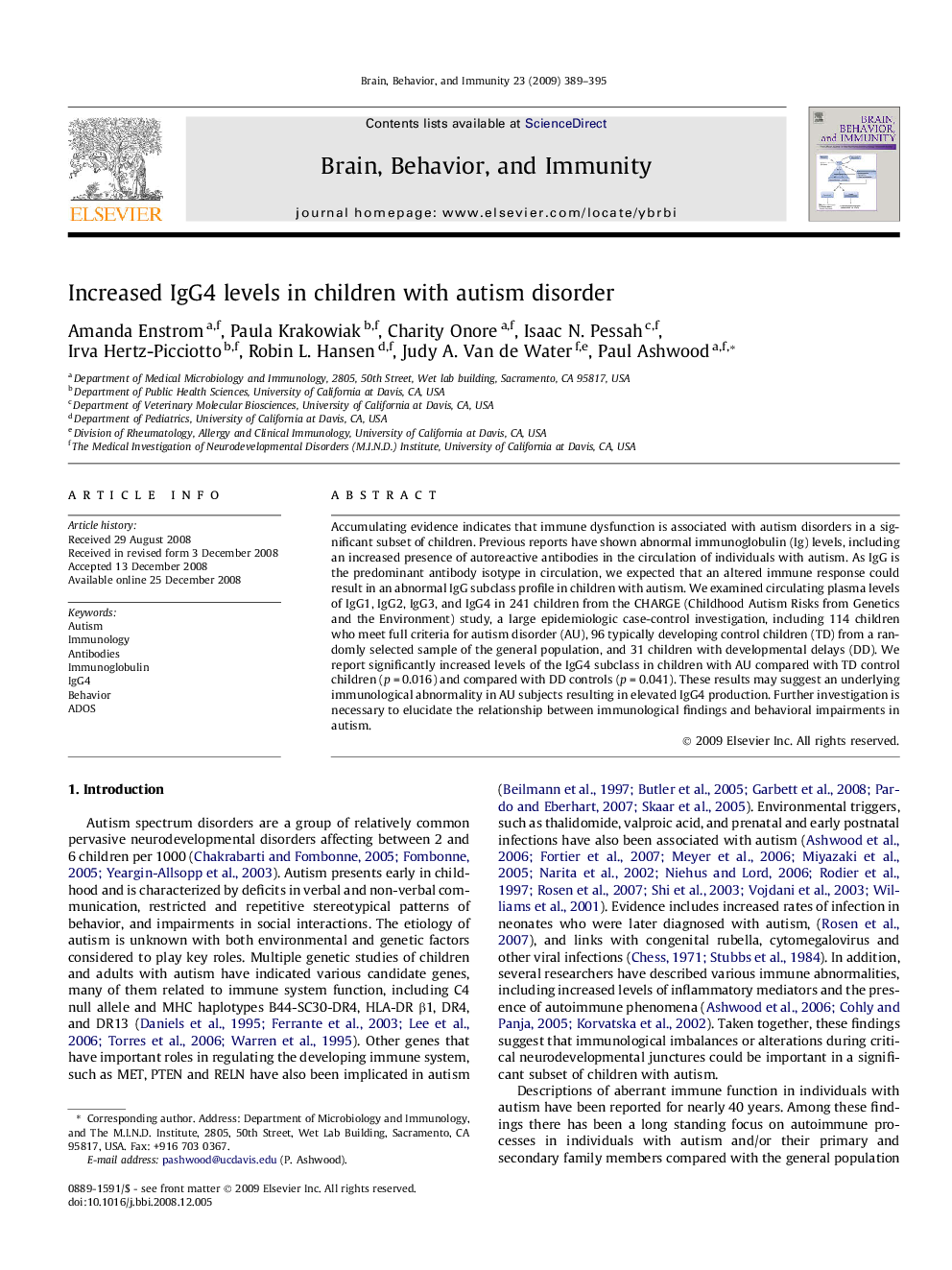| Article ID | Journal | Published Year | Pages | File Type |
|---|---|---|---|---|
| 923553 | Brain, Behavior, and Immunity | 2009 | 7 Pages |
Accumulating evidence indicates that immune dysfunction is associated with autism disorders in a significant subset of children. Previous reports have shown abnormal immunoglobulin (Ig) levels, including an increased presence of autoreactive antibodies in the circulation of individuals with autism. As IgG is the predominant antibody isotype in circulation, we expected that an altered immune response could result in an abnormal IgG subclass profile in children with autism. We examined circulating plasma levels of IgG1, IgG2, IgG3, and IgG4 in 241 children from the CHARGE (Childhood Autism Risks from Genetics and the Environment) study, a large epidemiologic case-control investigation, including 114 children who meet full criteria for autism disorder (AU), 96 typically developing control children (TD) from a randomly selected sample of the general population, and 31 children with developmental delays (DD). We report significantly increased levels of the IgG4 subclass in children with AU compared with TD control children (p = 0.016) and compared with DD controls (p = 0.041). These results may suggest an underlying immunological abnormality in AU subjects resulting in elevated IgG4 production. Further investigation is necessary to elucidate the relationship between immunological findings and behavioral impairments in autism.
